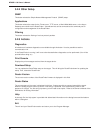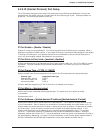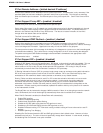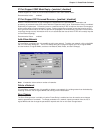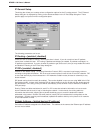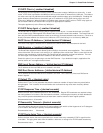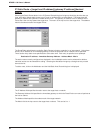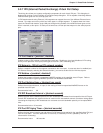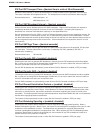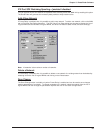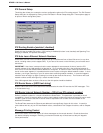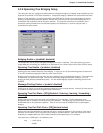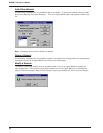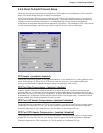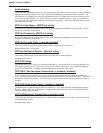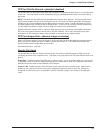
MTASR1-100 Owner’s Manual
54
IPX Port RIP Transport Time = [decimal time in units of 50 milliseconds]
defines the time required, in units of 50 milliseconds, to forward frames from the specified virtual IPX port.
This value is indicative of the speed of the link. The transport time is used to calculate the best cost path.
Recommended value: LAN based ports - 01
WAN based ports - 20
IPX Port SAP Broadcast Interval = [decimal seconds]
Defines the time interval between periodic IPX SAP broadcasts. Regular SAP broadcasts are required to
consistently advertise the presence of servers all over the internetwork. Increasing the frequency of
broadcasts can consume useful bandwith, specially on low-speed WAN links.
Service Advertisement Protocol (SAP) is used in IPX based networks to allow servers (application servers, file
servers, print servers, communication servers, etc.) to advertise their presence on the internetwork. Routers
use these advertisements to build up tables listing the servers so that they can then advertise these servers on
the local segments and provide routers to the server. Client workstations can request the router for a list of
these servers.
IPX Port SAP Age Timer = [decimal seconds]
Defines the time interval used to age and delete IPX SAP based route entries for the specified IPX port from
the route table. The timer starts when a route entry is created by IPX SAP, updated by IPX SAP, or
referenced for forwarding.
Recommended value: 180 seconds
IPX Port Periodic RIP = [enabled l disabled]
Checking this item turns on periodic RIP broadcasts. Normally periodic RIP broadcasts should be enabled.
But, in case you are using Dial-On-Demand type of WAN links or you want to reduce the amount of traffic on
some link connected to this port, then uncheck this item.
Periodic RIP broadcasts are automatically turned off when Dial-On-Demand is enabled in PPP port setup.
IPX Port Periodic SAP = [enabled l disabled]
Checking this item turns on periodic SAP broadcasts. Normally periodic SAP broadcasts should be enabled.
But, in case you are using Dial-On-Demand type of WAN links or you want to reduce the amount of traffic on
some link connected to this port, then uncheck this item.
Periodic SAP broadcasts are automatically turned off when Dial-On-Demand is enabled in PPP port setup.
IPX Port Discard Serialization Packets = [enabled | disabled]
Checking this item causes the IPX router to discard Novell Netware File Server serialization security frames
received from the specified virtual IPX port. Novell Netware File Servers implement broadcast frames, often
referred to as security frames, that contain serialization information regarding the license of the file server
executable. This feature permits filtering of these broadcasts to help reduce WAN traffic and is not intended to
interfere with copyright protection mechanisms.
This feature will be automatically turned on when Dial-On-Demand is enabled in PPP port setup.
IPX Port Watchdog Spoofing = [enabled | disabled]
Checking this item enables Novell Netware File Server Keep-Alive watchdog packet Spoofing. When a
Netware workstation logs into a Novell Server, the Server will issue Keep-Alive messages to the client in order
to determine if the workstation is active. The Keep-Alives are generated on a periodic basis and thus
consume considerable bandwidth on low speed serial links. When enabled, the IPX Port Watchdog feature
causes the RouteFinder to reply on the specified port, and on behalf of any IPX workstations located on a
network reached via any other IPX virtual port.
This feature will be automatically turned on when Dial-On-Demand is enabled in PPP port setup.



